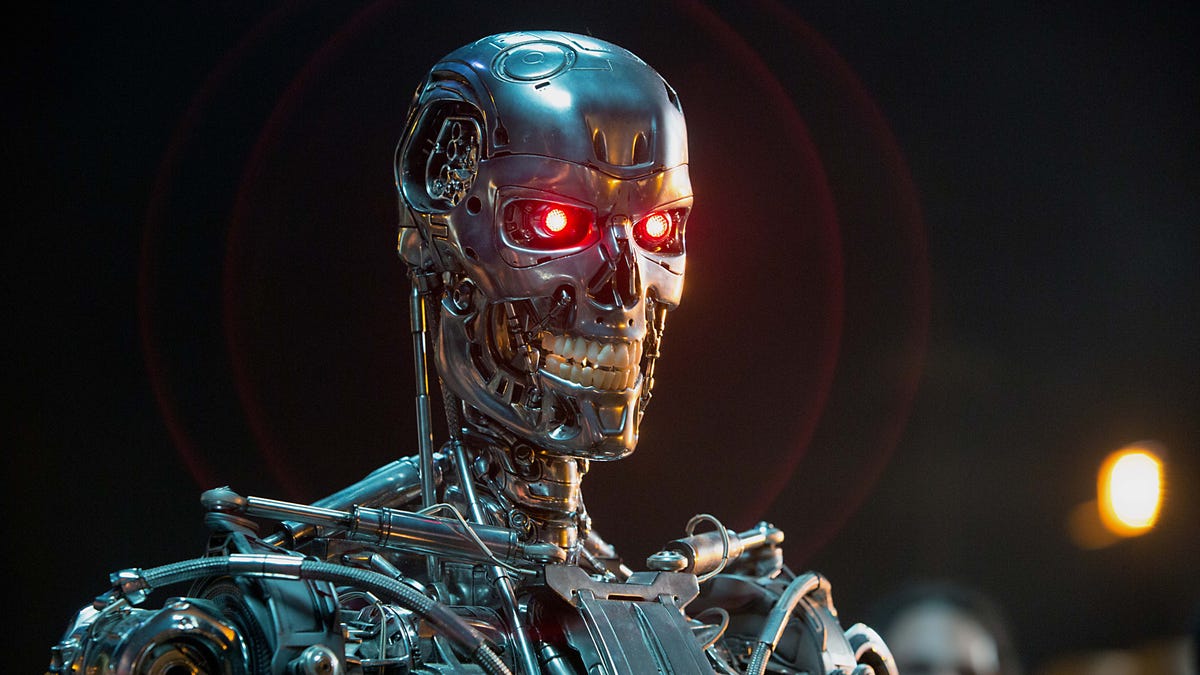When Hollywood does AI, it's fun but farfetched
Don't head to the multiplex expecting the truth or a light touch when it comes to artificial intelligence.

Go to the movies or turn on a TV, and you'll quickly learn to fear artificial intelligence.
The power of rogue computers is one of Hollywood's most popular topics. Call it an existential fear of the unknown, or perhaps a sense of our own mortality. Whatever our future actually holds, we're fascinated today by how we might share it with machines that become smarter, nimbler and -- gulp -- meaner than we are.
Even a techno-sophisticate like Elon Musk frets about us "summoning the demon," and research companies like OpenAI have been founded with the goal of ensuring that AI doesn't turn around and bite us.
While researchers creating AI in Silicon Valley and collegiate computer science labs have their own theories about what this software will become, they've seen the movies just like us, and they know what's on our minds.
They also think few Hollywood films have depicted the technology in a realistic way. In fact, they say, it's downright madness.
Here are the best and worst examples of how the movies treat AI, from some of the people who work on the technology every day.
Best: "2001: A Space Odyssey." While some experts blamed this 1968 movie for perpetuating the myth of a machine acquiring human traits like a hunger for power, most agreed it is the most elegant expression of how the human-robot relationship could go wrong.
"HAL 9000 was not the first example of evil AI on film, but he marked a watershed moment. Suddenly, homicidal computers were within our grasp."
-- David Pynadath, researcher, Institute for Creative Technologies at the University of Southern California
Most controversial: "Ex Machina." The experts either loved it or hated it. Some praised the 2015 film for its portrayal of the evolving relationship between humans and machines. Rather than the AI agents acquiring some spooky consciousness, they stuck to their programming, indifferent to human values, with unforeseen and unhappy consequences. Others thought the film clung to the myth of the lone evil genius, where actual advances in AI are likely to be collaborative.
"Creating AI will require vast financial and engineering resources. Think Google, and not two guys in a garage."
-- Thomas Dietterich, professor of computer science, Oregon State University
Most realistic: N/A. Researchers universally say Hollywood has yet to fully capture the nature of AI. Some say the doomsday scenarios are farfetched. Others say notions of a robot apocalypse distract from the actual dangers AI presents -- a mission carried out to its logical extreme. (Must cure cancer. Have access to nuclear codes. Wipe out humans. Done.)
"I know [a Terminator-style robot] is the kind of image that appeals to our subconscious much more than very technical-sounding reports of what may go wrong, but the truth lies in the more nuanced version."
-- Meia Chita-Tegmark, co-founder, Future of Life Institute
Least realistic: "The Terminator." This pop-culture touchstone is universally reviled by the AI community. (Sorry, Arnold.) The 1984 movie and its sequels commit the dual sin of overemphasizing the robotics aspect of AI and also vesting AI with human qualities like a hunger for power and an aptitude for murder.
Agent Smith, one of the main bad guys in the dystopian "Matrix" trilogy, is an AI program that hunts down rogue humans within the system, until he morphs into a computer virus.
"'Terminator.' It feeds the stereotype of evil robots."
-- Oren Etzioni, executive director, Allen Institute for Artificial Intelligence
Least favorite: "The Matrix." This 1999 movie was also mentioned often by experts, who say Hollywood's obsession with superimposing human characteristics onto machines is unrealistic. Machines, they say, will not spontaneously acquire consciousness or turn evil.
"A silly premise (humans make terrible batteries!) coupled to subpar storytelling."
-- Rob Bensinger, researcher, Machine Intelligence Research Institute
Most Underrated: "Robot & Frank." The comedic inclinations of this 2012 film don't give it the gravitas of other AI-centric movies. However, its concentration on the complex interaction between human and machine renders it a subtly sophisticated treatment of the actual problems many of today's AI researchers are attempting to solve.
"The movie gets at one of the core issues of advanced AI: How can we ensure that the systems will properly resolve conflicting goals and make (human) ethically justifiable decisions."
-- Bart Selman, computer science professor, Cornell University
Worst ending: "A.I. Artificial Intelligence." Many of the experts praised the 2001 Kubrick-Spielberg project, saying the storyline offers a plausible depiction of AI. That is, until a group of aliens allow the main character, a robot, to travel back in time to spend one more day with his mother.
"'AI' was reasonably realistic, except for the last scene."
-- Yann LeCun, director of AI research, Facebook



